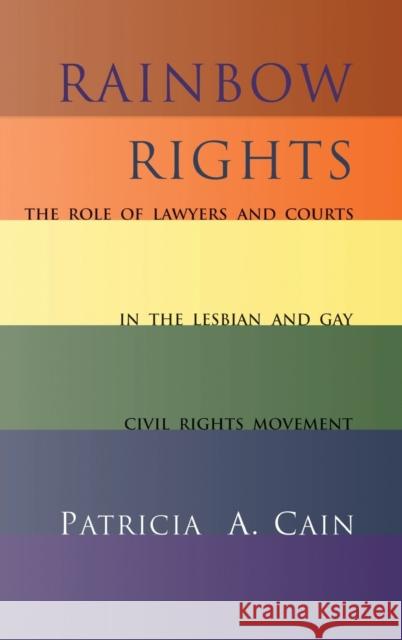Rainbow Rights: The Role of Lawyers and Courts in the Lesbian and Gay Civil Rights Movement » książka
Rainbow Rights: The Role of Lawyers and Courts in the Lesbian and Gay Civil Rights Movement
ISBN-13: 9780813326184 / Angielski / Twarda / 2000 / 332 str.
Rainbow Rights: The Role of Lawyers and Courts in the Lesbian and Gay Civil Rights Movement
ISBN-13: 9780813326184 / Angielski / Twarda / 2000 / 332 str.
(netto: 674,98 VAT: 5%)
Najniższa cena z 30 dni: 654,86 zł
ok. 22 dni roboczych
Bez gwarancji dostawy przed świętami
Darmowa dostawa!
This book describes the substantive state of the law with regard to lesbian and gay rights. It begins with some background information to put the modern fight for lesbian and gay rights in its proper historical context, then categorizes lesbian and gay rights claims into three areas-individual rights in private contexts, individual rights in public contexts, and couple or family rights thought of as private but pushing into the public sphere-that add up to a single principle: the right to be human in a modern society.Arguing against the popular misconception that the Lesbian and Gay Rights Movement began with Stonewall in 1969, Patricia Cain shows that the first gay rights organization in the United States was formed in 1924 in Chicago. From the Mattachine Society in Los Angeles and the Daughters of Bilitis in San Francisco, to the formation of the Society for Individual Rights (SIR) in 1964, the book examines the ways that these early organizations, although different from today's gay rights groups, served as important contributions to the modern fight for lesbian and gay legal rights. The author looks at how the most important cases of the 1950s and 1960s--the political battles over keeping gay and lesbian bars open and the fight by government employees to keep their jobs during the governmental purge of suspected homosexuals along with suspected communists during the McCarthy era--have helped to shape the state of the law today. By exploring the background, key cases, and important issues yet to be resolved, Rainbow Rights translates the legal claims and arguments into accessible language and concepts which will be of interest not only to lawyers and law students, but also to persons not trained in the law.











